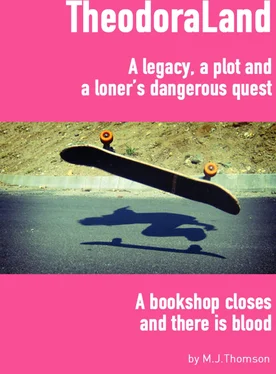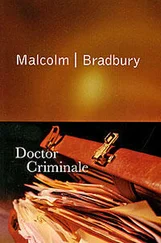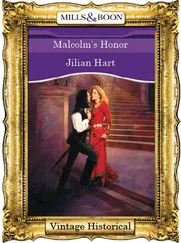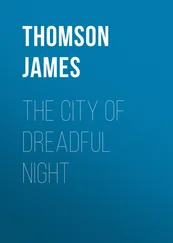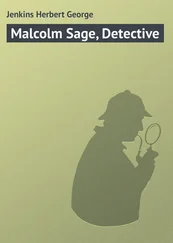1 ...7 8 9 11 12 13 ...19 Foolishly, the rest of us thought, Margrit had moved in with the aforementioned Hunt who, she soon discovered, was an opportunistic unfaithful bastard, but of the American rather than the French kind. I should have warned her about the man. Although, since she now worked in insurance, she should have been able to figure out the odds.
Eva was tiny, androgynous and studying pre-med. She would one day resolve her gender dystrophy, or so we all hoped. She was a good-natured girl, ingenuously impudent at times. She had been notably touchy-feely in our college years, tending to throw some of us adoring glances which we were not supposed to notice. But we presumed that she was still not even close to coming out.
All of us agreed that it was admirable that three years after gaining our degrees we kept in touch rather than drifting off when our studies ceased to be a common experience. With only one of our number distracted by matrimony it appeared that our posse could last a good few years more.
Marriage! I had a view which I kept to myself, that as the autocratic ruler of TheodoraLand (population one) I would have no husband. A consort, perhaps. One day.
What I also told none of the others was that I stood to inherit Brunnenbach Bücher and the big house overlooking Weinfelden.
“You are not fucking listening to me,” said Ursel Lange, loud enough to alarm the very Swiss middle-aged couple at the table next to ours. As I said, blunt.
“Sorry! I was thinking abut my Munich crowd.” Our last drunken tour of the bars and clubs had been just before Herr Lessinger’s demise. I had needled some of the others (no, not Astrid) who this year wore very brief shorts, mostly in denim, although Eva’s were boyish Lederhosen. The summer before I had been the only one in extreme cut-offs. Heidi called it ‘mirroring’ and said I should take it as a compliment.
“God, they’re not all on the way here, are they?”
“No, just Dirk and Bea.”
“You did tell me a bit about Dirk, made mention of his manly magnificence,” said Aunt Ursel with a little gotcha smirk, hoping I might cringe.
In other respects he’s quite normal, I countered, omitting to point out that he tended to live much of the time in a fantasy world of cops and robbers and other ne’er-do-wells. And I elaborated upon the utter ordinariness of the ‘greige ghost’ and Bea Schell’s determination to be as good as invisible.
“Hah!” Ursel would say a few days later.
Fairouz, Ursel’s preferred Weinfelden taxi driver, responsive whenever speed-dialled, took us back up the hill. He talked as usual non-stop on his cellphone with some of his numerous children, friends, acquaintances and relatives in melodious Tamil.
I had confirmed that our joint floral tribute had been one of the largest at the funeral of Ludwig-Viktor Lessinger.
“But not… well… conspicuously big, I hope?”
Strange question.
“His two more recent lady friends… who of course met for the very first time at Nordfriedhof… had ordered smaller wreaths which were almost identical.”
I explained Vera and Agnes in soap-opera terms.
“I think both of them were miffed that none of the books he… took with him… were from their own collections.”
Aunt Ursel made no comment about the odd notion of wishing books of any kind to be put in one’s coffin.
“Three of his precious Latin incunabulae, I suppose, to read on his crossing of the Styx.”
I had not said that there were three books involved, had I?
Dirk Seehof would have spoken of ‘tells’. He rejoiced in the jargon of the clandestine worlds, the vocabularies of policemen and agents, detectives and spymasters. There were tiny tells, almost imperceptible out-of-character reactions, changes of posture, evasive glances, as Ursel listened to as much of the story as I was prepared to reveal. Bea’s speculations about interested Italians and Dirk’s involvement I kept to myself although I did admit that they were as intrigued as I was. When I finished my aunt knew as much but not more than Rudiger Reiß, whom I also had not mentioned.
“Piqued your curiosity, I suppose. Quite understandable,” said Aunt Ursel, frowning at the microwave. She had never been quite convinced that the device provided a better way of preparing her bedtime Ovomaltine.
“The books, then, have been cooked… incinerated… cremated,” she said, watching her mug spin behind the little oven’s window.
“So it would appear,” I said.
“Yes, so it must appear. Good night, Thea.”
Unusually I gave her a quick hug, careful not to cause Ovomaltine spillage. I think Ursel saw my awkward embrace as a big fat tell.
WEDNESDAY 6 JUNE 2012
I find it easy to slip into a laid-back Säntisblick mode. There were strenuous but enjoyable hikes with Aunt Ursel, meals prepared by Frau Steinemann or by me when I could persuade the housekeeper to vacate the kitchen. There were a couple of rainy days when the television in the Bauernstube showed more than football.
There was much impassioned discussion between talking heads about the morality of drone strikes in Afghanistan. Bea, I thought, would have concerned herself only with the advanced technology involved in this new way of slaughtering innocents. Pundits painted a gloomy picture of what the crash of the Japanese stock market could mean for us all. Queen Elizabeth, honoured in lavish Silver Jubilee celebrations, provided further gracious proof that Aunt Ursel’s generation could be very resilient indeed. Dirk would have commented on unresolved plots and conspiracies involving British royals.
He and Bea were on their way.
My room in the house on the hill has an en suite bathroom, which is cool, and last year I had invested in a top-of-the line Turmix espresso machine, made in Zurich by a company founded in 1933 by Traugott Oertli, a name I find kind of cute. It was well worth the price for it meant that I can have my first shot of caffeine without the need to leave my quarters. Years ago Frau Steinemann made it quite clear that she was uncomfortable with me wandering around the house in the nude, although I know it didn’t bother Aunt Ursel at all.
A sepia tinted photo in an Art Deco frame at the foot of the stairs in the entrance hall, not easily missed by any visitor, announced that the high-walled garden of Säntisblick, at least, had been a ‘clothing optional’ enclave back in the very late forties. I chose to make the same assumption, particularly when the weather was as inviting as now. Anyway, the espresso machine in my room had been a good idea. Decaffeinated manque avoided. Propriety preserved, at least indoors during the earliest hours of a new day.
However perched on my chair on the narrow balcony with my double espresso today I felt not just naked but also defenceless.
Bloody Dirk!
His follow-up piece on the blog of the Munich newspaper that few read started out innocuously enough as a reasoned discussion of ‘grave goods’, personal possessions, supplies to smooth the journey into the afterlife or offerings to the gods, interred with a person deceased. King Tut’s little chair made of ebony inlaid with ivory. The American who in 1899 requested that he be dressed in a hat and warm coat with the key to the tomb inside his coat pocket. Movie star Humphrey Bogart was buried with an inscribed silver whistle. In 1944, he starred in To Have and Have Not with Lauren Bacall, who became his fourth wife. A famous line from the movie, delivered by Bacall to Bogart, was, “If you need anything, just whistle.” When California socialite Sandra Ilene West died in 1977 from a drug overdose, she was buried in San Antonio, Texas, in her 1964 Ferrari 330 America. She asked to be clad in her favourite lace nightgown with the driver’s seat positioned at a comfortable angle.
Читать дальше
